Academic Editors
The following people constitute the Editorial Board of Academic Editors for PeerJ. These active academics are the Editors who seek peer reviewers, evaluate their responses, and make editorial decisions on each submission to the journal. Learn more about becoming an Editor.
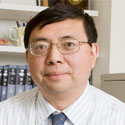
Jun-Lin Guan
Professor of Internal Medicine and of Cell and Developmental Biology at University of Michigan Medical School. Fellow of the American Association for the Advancement of Science.
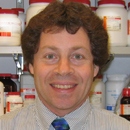
Jeffrey A. Toretsky
Professor of Pediatrics and Oncology at Georgetown Universitys Lombardi Comprehensive Cancer Center in Washington, DC. Leads the Molecular Oncology Program. Board certified in Pediatric Hematology/Oncology. Received the Burroughs-Wellcome Clinical Scientist Award in Translational Research in 2008.
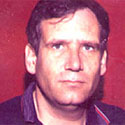
Yosef Gruenbaum
Professor of Genetics and is currently the Chair of the Institute of Life Sciences at the Hebrew University. Member of Faculty 1000 and has served on the editorial board of several journals.
Research Fields:
Lamins and their associated proteins in health and disease The roles of the nuclear lamina in development and aging The role of the nuclear envelope in apoptosis Molecular and genetic analysis of matefin/SUN-1 The sensing and responding to high CO2 levels.

Janos Zempleni
The Willa Cather Professor of Molecular Nutrition at the University of Nebraska-Lincoln. Director of the Nebraska Gateway to Nutrigenomics. Funded by NIH and NIFA/USDA. Member of AAAS, American Society for Nutrition, American Society of Physiology, Society for Experiemental Biology and Medicine, Sigma Xi, and Gamma Sigma Delta. Research interest in nutritional epigenetics, gene regulation, cell differentiation, and genome stability.
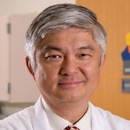
Ching-Hon Pui
Chair of the Dept of Oncology at St. Jude Children's Research Hospital and an American Cancer Society Clinical Research Professor. Recipient of the 2009 American Association for Cancer Research Team Science Award, the 2010 Castle Connolly National Physician of the Year Award, the 2011 American Association for Cancer Research Joseph H.Burchenal Clinical Research Award, 2011 American Society of Hematology Henry M. Stratton Medal, & 2012 American Soc. of Clinical Oncology Pediatric Oncology Award

David Schrama
Research focus on tumorimmunology and tumorbiology of skin cancer especially melanoma and merkel cell carcinoma. PhD and Post-Doc at medical university hospital Wuerzburg. Now Associate Professor at Medical University Graz, Austria.

A. Harvey Millar
Professor of Plant Biochemistry and Director of The Comparative Analysis of Biomolecular Networks Research and Training Centre (CABiN) at the University of Western Australia. Editorial Board Member: The Journal of Biological Chemistry, Plant Methods, The Arabidopsis Book. Recipient of the 2012 Fenner Medal for Biology from Australian Academy of Science; Science Minister's Prize -Life Scientist of the Year 2005, Australian Federal Government.
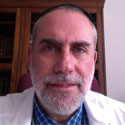
Neil W. Kowall
Professor of Neurology and Pathology and Director, Boston University Alzheimers Disease Center, Boston University School of Medicine; Chief Neurology and Director of the VA New England Geriatric Research Education and Clinical Center, VA Boston Healthcare System.
Barbara K. Felber
Dr. Felber received her Ph.D. in molecular biology from the University of Bern, Switzerland. After carrying out postdoctoral studies in the Laboratory of Biochemistry, NCI, she joined the Molecular Mechanisms of Carcinogenesis Laboratory, ABL-Basic Research Program, in 1985. In 1990, Dr. Felber established the Human Retrovirus Pathogenesis Group. In 1998, Dr. Felber received her tenure appointment and, in 1999, she joined the Center for Cancer Research, NCI.

German C. Spangenberg
Professor of Plant Genetics and Genomics with La Trobe University. Director AgriBio, the Centre for AgriBioscience, Executive Director, BioSciences Research Division of the Victorian Department of Primary Industries, Chief Scientist of the Dairy Futures Cooperative Research Centre, Chairman of the Victorian AgriBiosciences Centre; Recipient of the Australian Thinker of Year Award; President of the International Association for Plant Biotechnology; Former Chief Editor Plant Science.
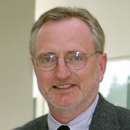
Daniel L. Rock
Formerly a research leader in exotic viral diseases at the Plum Island Animal Disease Center for 15 years, Dr. Daniel Rock has earned international recognition in the areas of infectious disease and molecular pathogenesis of viral diseases. His research has focused on the molecular mechanisms underlying viral virulence and host range, with particular emphasis on high-consequence viral diseases such as foot-and-mouth disease and exotic pox viruses.
Dr. Rock earned a PhD in veterinary microbiology from Iowa State University, Ames. He completed a post-doctoral fellowship in molecular virology at the Wistar Institute, University of Pennsylvania, Philadelphia, and held faculty positions at North Dakota State University, Fargo, and the University of Nebraska-Lincoln before joining the Plum Island Animal Disease Center, New York, in 1989. In 2004 he became a professor with the Department of Pathobiology and Veterinary Science and the Center of Excellence for Vaccine Research at the University of Connecticut, Storrs.

Jürgen C Becker
Prof. Becker is heading the Department of Translational Oncology at the Westdeutsches Tumorzentrum in Essen with a focus on skin cancer research.
Jürgen C. Becker received his medical degree from the Medical School Hannover for his work on the immune regulatory capacity of natural killer cells on the adaptive immune system. After finishing medical school he was first trained in Dermatology at the University of Würzburg and then as well in Tumor Immunology at the Scripps Research Institute, La Jolla, and the Danish Cancer Society, Copenhagen. For his characterization of the impact of therapeutic interventions on the adaptive immune responses against melanoma in preclinical models he received the PhD in Immunology. In 2003 he became full professor for Dermato-Oncology in Würzburg, where he coordinated a Clinical Research Group focusing on the tumor microenvironment. In 2010, he was appointed as director of General Dermatology at the Medical University of Graz. There, in parallel to his clinical duties, he successfully attracted the FP7 EU-project IMMOMEC (IMmune MOdulating strategies for treatment of MErkel cell Carcinoma, www.immomec.eu) and became deputy speaker of the graduate training program DK-MOLIN (Doktoratskolleg MOLecular fundamentals of INflammation, www.medunigraz.at/DK-MOLIN/).

